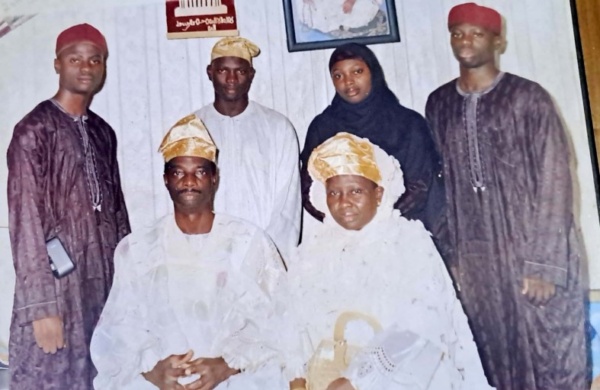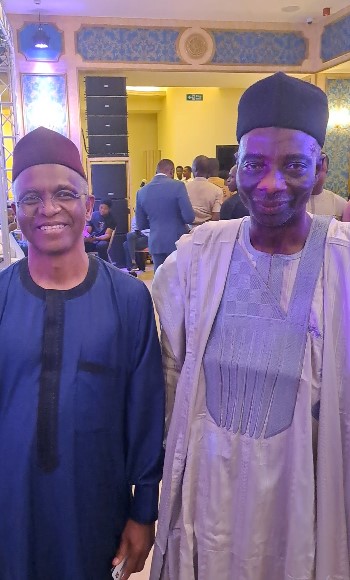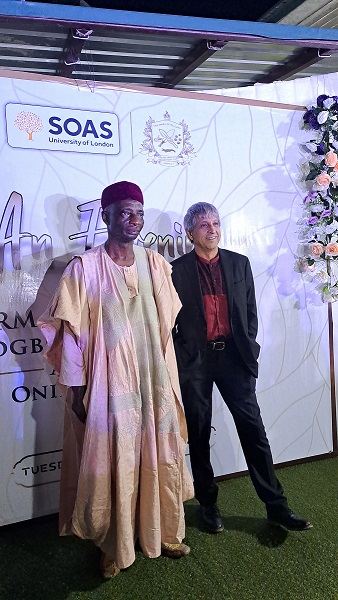By Toyin Falola
People’s contributions to human affairs differ in approach and models, but this does not eliminate the fact that the quality of our additions to conversations of advancement cannot be homogenized or generalized, for some people have impregnable influence in changing the human world with their outstanding contributions. Differences in the applicability of our contribution ultimately indicate that they would always have various impacts. An individual who provides the guiding light to oversee the smooth passage of people from a place of weakness to a position of strength cannot be compared with those who do not have concrete initiatives that are added to their name. This explains why only a tiny fraction of individuals remain in latent history that have their names recorded in gold. To that extent, humanity appreciates contributions from individuals who made strenuous and pioneering efforts in the transformation of a system from a particular condition to a better one. This is underscored by the awareness that pioneering efforts in any area of human existence always demand a level of commitment and sacrifice that people without values can give. As such, the pains of making way for others cannot be overemphasized and always get to the attention of successors as they would always find something to guide them, to lead them when they are faced with despair and uncertainty. Everyone is vulnerable to one thing or the other, and this fear is deepened when they find themselves in a helpless condition.

In scholarship, people who bear the brunt of conducting research and undertaking the pains of gathering data cannot but get the accolades that they deserve. In this category is one eminent scholar, Professor of professors, who has redefined scholarship with his insightful and thought-provoking ideas expressed in several publications associated with him. Professor Sanni’s contributions to scholarship are nothing short of epochal, and they exude class. In one of his sound intellectual engagements, Professor Amidu Sanni examines the violence that has engulfed Nigeria by using his intellectual skill set to demystify the commercialization of violence and the economy of war that have both become popular in the country.
In all its evolution, Islam has been painted black across different places of the world without usually contextualizing issues and problems that they have ascribed to them. However, with the educative literature coming from scholars like Sanni, there is a need to rethink the subject matter itself. Sanni argues on one occasion that the proliferation of violence by the Islamic sets partly accentuates the position that some powerful individuals are actively involved in the commodification of Islamic ideology to make money for themselves. Irrespective of the moral question that hangs on the neck of perpetrators who pursue such unlofty ambition, people continue to benefit from the chaos and hostilities that other innocents would have to encounter. It comes as no surprise thus that violence has resisted all forms of effort for peace.

Sanni was not pretentious in the publication when he boldly avers that terror has been deliberately instituted in the Nigerian space in order that the beneficiaries would continue to territorialize the economic and financial potentials that are linked to it. He mentions that the innocent Nigerian youths who have been trapped in ethnic and religious altercations are unaware of the other side of the coin, where instigators go home with a humongous and far economic opportunity translating into immense wealth because of their innocent ignorance. The state, which in most cases profits from the enterprise of violence either economically or politically, the enthusiasts who are actively involved in the business, and their opponents have always used religion as the platform to drag the people into an abyss of terror and chaos where they are often incapable of getting out from because they have been misinformed deliberately by those who benefit from the economy of violence.
To that extent, we get to know from the findings of this stellar academic that unless the root causes of deprecatory politics receive great attention, we will always have a poor mindset towards those who are themselves the architects of challenges that face humanity. That means that there is a high risk of seeing those who are the enemies of the states as its heroes while those who are innocent are the masterminds of chaotic orchestrations, which brings melancholy to the populace. Sanni argues that violence is business, and I agree with him.
One cannot fault Professor Sanni’s commitment to quality intellection when one understands that he has always been very impartial and dispassionate about the positions he holds as far as intellectual debates are upheld. Would it surprise you that he eventually gave a sequel to earlier positions where he established the philosophical dimensions of chaotic engagements that are linked to religion?
It was in 2016 when he mentioned that firebrand activism demonstrated by far-right Muslims is an ideological philosophy rooted in their protest quietist Muslims who have always supported reformist orientation as against the extremist approach that some individuals have resorted to adopting. Giving the historical context to his position, he argues that several international actions and affairs incubated extremist Islamists who, for instance, believed that the spread of the religion deserved a little dose of autocratic disposition. Their approach has, therefore, necessitated the aggressive recalibration of people’s orientation towards Islam in ways that ultimately reduce the confidence of people in it. It should be mentioned that groups like Boko Haram have continually undertaken strange measures in passing their messages and have become very susceptible to manipulations by the ready-made protagonists who want to take advantage of the platform for provincial objectives. Professor Sanni’s commitment, which is showcased in this manner, has a bearing on truth.

With his protruding literature on Islamic scholarship, one would almost assume that Professor Amidu Sanni is a one-way academic figure who cares less about what happens in other areas of research. But that will be misleading because it is a wrong evaluation of a scholar who has been nothing sort of an intellectual fertilizer to us all in academia. I find it very enlightening and even inspiring, too, that, in one of his publications, the scholar dwelled on the pogroms of confusion and complications that the traditional archival system and its custodians face in the fast-paced evolutionary atmosphere of the world. He argues that manuscript writing is fossil evidence that humans have always banked on to make institutional efforts toward the preservation of knowledge and the transmission of it across generations. Much as manuscripts served as evidence of literacy, their potency has been critically challenged by the emergence of digital archives, where technology is used as an agency of information storage and dissemination, as against the earlier strategies. Sanni states that digital technologies arguably provide better alternatives for people because they not only store information with utmost precision and safety, but the system also provides conciliatory solutions to the problems of information manipulation that existed in the age of neural archiving. The onus of his argument is that humanity cannot escape its evolutionary potential, and for that reason, it should always take advantage of opportunities provided by the condition and not isolate itself because of suspicion.
In manners that indicate his intentionality and uncompromising commitment to sound scholarship, Sanni has given his life to distributive knowledge engagements if they promise unquantifiable improvement to the human family. This professor has never masked his aversion to hegemonic epistemic traditions of the world that seek to insulate others from the discourse of quality intellection when debates arise around it. He, for example, challenged the popular idea of racializing knowledge engagements, especially when there is an undertone of divisive schematics that delineate one part of Africa from the others. Educators from the Western shore of the African continent have always received marginal attention and given deprecatory views because of the assumption that they belong to a global subaltern bottom that is seen as a dumping site for other people’s ideas. This distinguished professor insists that the separation of the Western and Southern parts of Africa from their colleagues in North Africa is an attempt to undermine the former and be considered unimportant in the grand scheme of things. This effort led to the abandonment of a character of oppression, which had earlier been noted in all its ramifications. In a nutshell, this professor has demonstrated an unequal sense of purpose in correcting the wrong notions that people have about Africa, the religious dimensions of their uninformed postulations, and the proposition of better alternatives that would immediately drive the country to move forward.
PS: This is part 2 of 3 on Professor Amidu Sanni, who was appointed as a University Distinguished Professor at Lagos State University. He will be officially honoured at the 27th Convocation ceremony on Thursday, June 6, 2024. I will attend the event in person, even if it is a long distance.
What I read here was remarkable and provoking.
Congratulations Sir.
Alhamdulillah!
A great life achievement indeed!
May the Absolute creator of all grant our Imam good healthy and long joyful life here and Aljanat Fridaos in the hereafter – aameen.
Congratulations Prof Amidu Sanni for the attainment of this enviable feat. May Allah spare you for more contributions to the betterment of the Umah and world at large. Barahkahllah fihi!!
Alhamdulillah,
Prof. Sanni Amidu, is an icon of scholarly giant whose impactful teachings are not limited to religious and Islamic values only but a practical epitome of humility, honesty and sincerity of purpose.
May Allah continue to multiply his knowledge and bestow him with good health and long life.
Ameen.
It only takes an intellectual juggernaut to recognize another. I marvel at the creativity in his writings and the oratory power in his presentations.
You’re indeed a blessing to humanity.
Alhamdulillahi rabil ālamīn for rare achievement , it is a well deserved, indeed Prof. Amidu Sanni is undoubtedly erudite scholar, a very big congratulations to you sir.